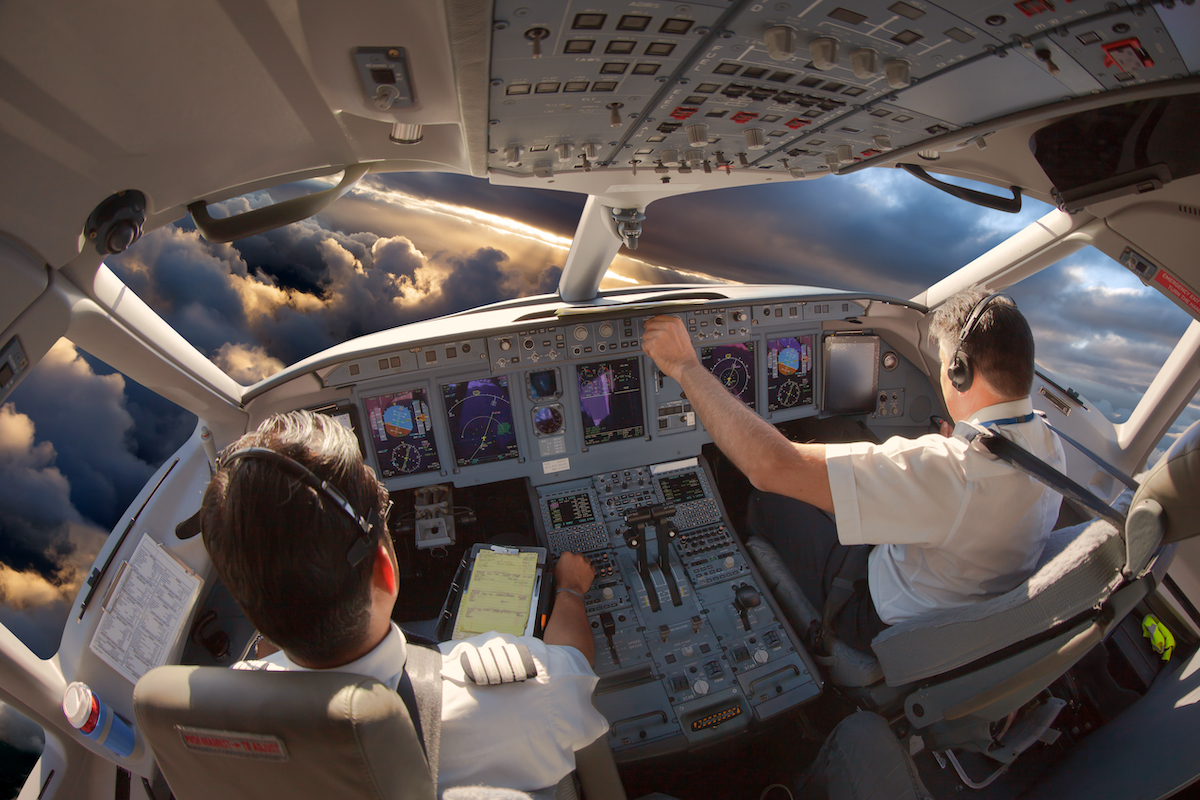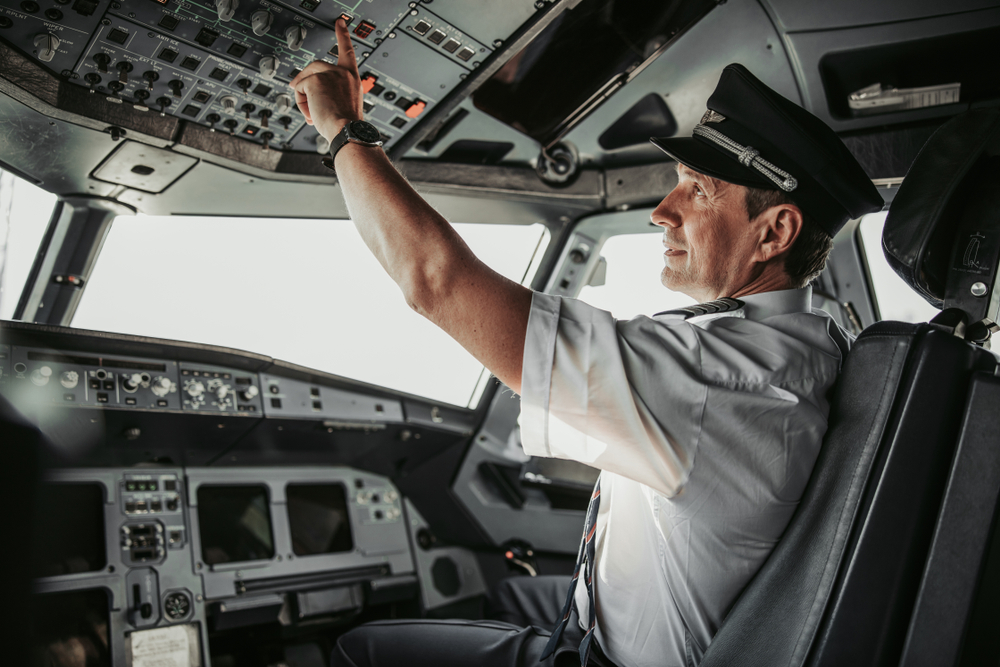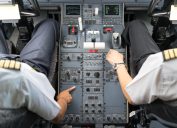If You Hear This on Your Flight, It May Be an Emergency, Pilot Warns
Using one phrase in particular on a plane is a sign that something could be wrong.
Bad flight experiences can come in many different forms. Some involve sitting next to an overly talkative seatmate. Others come at the hands of a dreaded delay or cancelation. But fortunately, experiencing an actual emergency that puts your safety in jeopardy on an airplane remains an exceedingly rare situation in the skies. Even anxiety-inducing bumps and jostles on board are something that both cockpit and cabin crews are well prepared to deal with or avoid entirely. However, if you hear a pilot using one lesser-known term in the cockpit, it may mean there's an emergency on your flight. Read on to see what jetliner jargon could signify an issue onboard.
RELATED: Never Do This Before Takeoff, Flight Attendant Warns.
Hearing a pilot use the term "pan-pan" could mean there's a minor emergency on your flight.

The most eventful crew interaction passengers may have for most flights could be a clever play on a safety instruction walkthrough or a humorous quip during drink service. On the other hand, hearing from the cockpit crew usually only happens when your plane reaches cruising altitude or your aircraft is either ahead or behind schedule. But if you ever overhear pilots using the term "pan-pan," it could be a sign there's a minor emergency on your flight.
"It's a way of getting attention from air traffic control on the ground and quieting the rest of the frequency," Patrick Smith, an airline pilot and host of AskThePilot.com, tells Best Life. "Not a sign of anything truly catastrophic. That's mayday, for that matter."
Unless you're seated on a small plane, it's unlikely the pilot will use the term with passengers.

Unlike some shorthand phrases or euphemisms that pilots may use over the P.A. system, "pan-pan" isn't a term most passengers will hear on a large commercial flight due to their physical separation from the cockpit. In most cases, pilots of large jets will use it to clear the airwaves before requesting an emergency landing such as in the event of an engine failing mid-flight, Mark Baker, a commercial pilot of 35 years and president of the Aircraft Owners and Pilots Association (AOPA), tells Time magazine.
Once other pilots on the same radio frequency hear the term, they'll usually "shut up and let you get your message across," allowing air traffic control to address the issue and offer faster guidance, Baker says.
RELATED: For more up-to-date information, sign up for our daily newsletter.
Pilots have gentle ways of admitting to passengers something is mechanically wrong with the airplane, including engine failure.

In the rare instance your plane has mechanical issues, pilots may still choose to directly address the cabin in a way that won't cause any panic or confusion. This can mean using the term "one of our engines is indicating improperly" to describe when an engine on the plane has failed, according to industry veterans.
And it's not just strong nerves that keep pilots calm in such scenarios. While the idea of losing an engine mid-flight may sound like a terrifying situation, it's surprisingly not much of a cause for concern or even a significant emergency in many cases. Commercial pilots train for hours on handling aircraft that have suffered engine failure. It's considered such a textbook problem that they may not even announce it at all, if only to avoid scaring passengers, according to Lifehacker. At most, pilots may divert the flight to make an unscheduled landing at another airport, but they will sometimes even carry on with the flight as scheduled if it makes sense to do so.
But even so, there's still the chance that a pilot could choose to say something entirely different. "There aren't really go-to euphemisms," Smith explains. "I know it would be fun to have a glossary, but that doesn't exist. If they are used, it's the pilot's choice at that moment. I try not to do that."
Experts say each pilot has their own way of communicating any issues with passengers and rarely use confusing jargon with the cabin.

No one wants to be on a flight where something goes wrong. But experts say that in those rare cases, what passengers hear from the cockpit could be more straightforward than they might expect.
"When I've diverted and informed passengers about what's going on, it's pretty straightforward about what you say and why you say it: You explain where you're going, how long it's going to take, and why it's happening," Smith tells Best Life. "People almost suspect a conspiracy with certain lingo, but it's really not true. I think that speaks more to people's anxiety about flying or distrust towards airlines in general."
Instead of code words that might confuse them, passengers should expect to be briefed on things they need to know—especially if it's for their safety. "There are ways of giving people accurate, real-life information that's not dumbed down and at the same time that doesn't incite unnecessary fear," Smith says. "As pilots, we use jargon and colloquialisms among ourselves, and you have to realize that using those terms with passengers can just come across as confusing and have the opposite effect when you're trying to keep people calm."
RELATED: This Is the Worst Place to Sit on a Plane, Flight Experts Say.






















